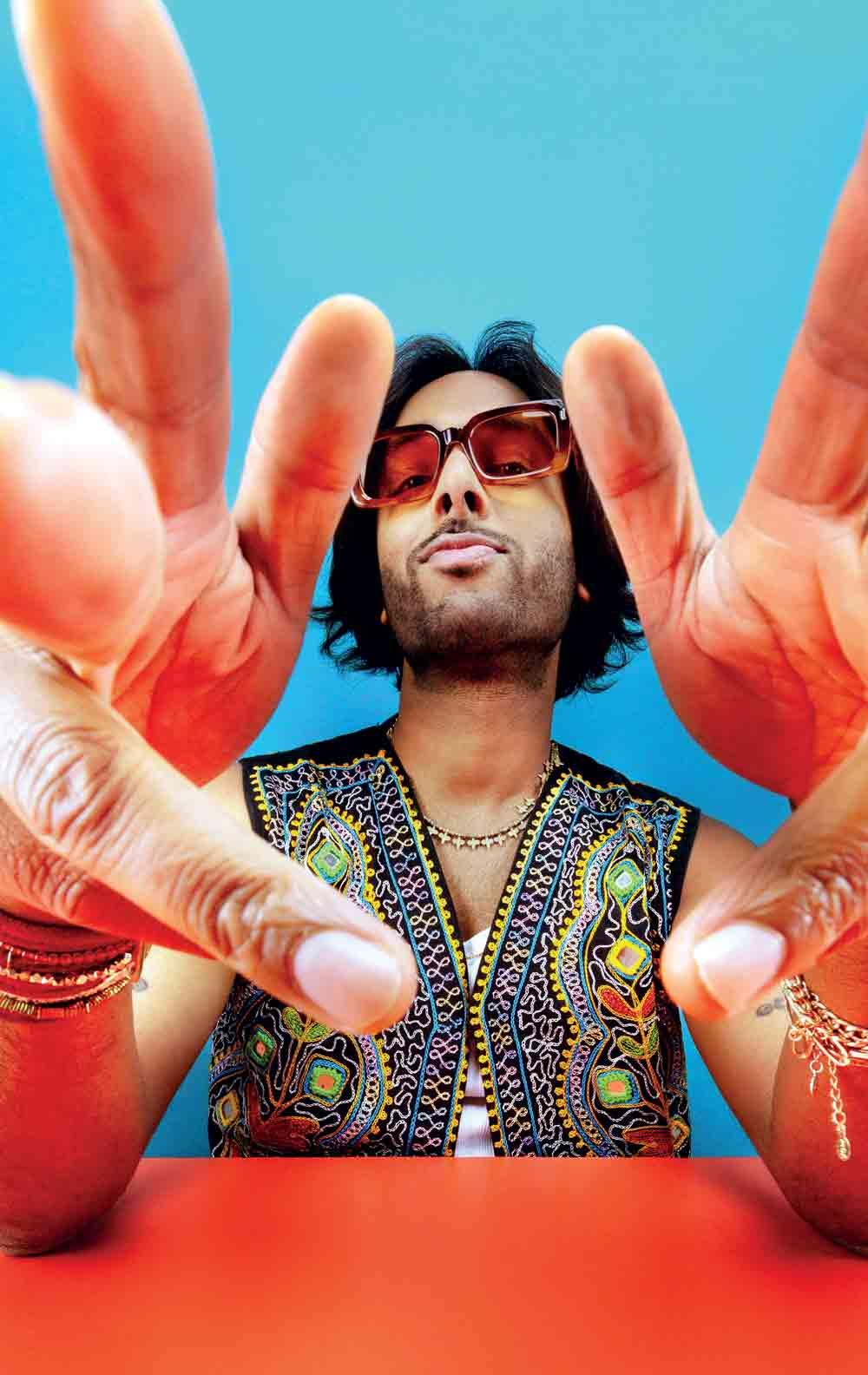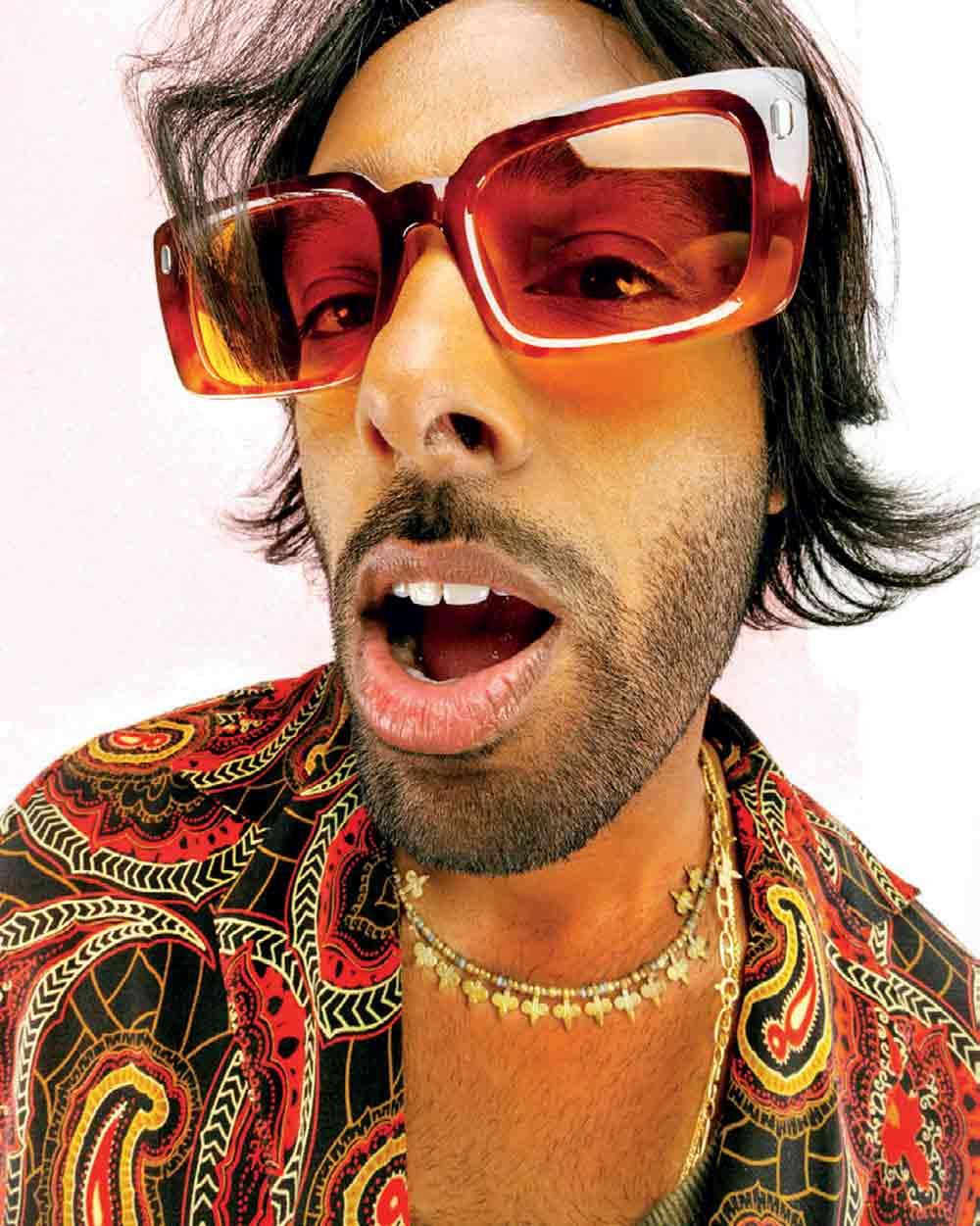Un*Deux Closes Azaadi Stage at Glastonbury in Style
 On Thursday night, amidst the rolling fields of Worthy Farm, something special happened. At one of the world’s most iconic music festivals, Glastonbury, a Paris-born artist of Sri Lankan origin closed the Azaadi Stage in a spellbinding back-to-back set with Almass Badat. With this magnetic finale, Un*Deux, a name fast becoming synonymous with genre-bending innovation, cemented his place as one of electronic music’s most exciting emerging voices. For many in the crowd, it wasn’t just a DJ set; it was a cultural moment, a celebration of diasporic identity, and a hypnotic journey through house, electro, and South Asian sounds.
On Thursday night, amidst the rolling fields of Worthy Farm, something special happened. At one of the world’s most iconic music festivals, Glastonbury, a Paris-born artist of Sri Lankan origin closed the Azaadi Stage in a spellbinding back-to-back set with Almass Badat. With this magnetic finale, Un*Deux, a name fast becoming synonymous with genre-bending innovation, cemented his place as one of electronic music’s most exciting emerging voices. For many in the crowd, it wasn’t just a DJ set; it was a cultural moment, a celebration of diasporic identity, and a hypnotic journey through house, electro, and South Asian sounds.
A Guru Behind the Decks
“Isn’t a good DJ a good guru?” Un*Deux poses this rhetorical question both in his press material and through the very essence of his performances. With his ability to unite crowds, induce trance-like states through hypnotic grooves, and deliver emotional resonance with every drop, Un*Deux elevates club culture into something near spiritual. His latest project, the album Good Guru (released May 2025), is a sonic embodiment of this ethos. Fusing deep, undulating electro and house rhythms with distinct South Asian instrumentation and samples, Good Guru is already turning heads and stirring hearts across global dance floors. At the centre of this body of work lies “Karma,” a standout single that dropped in January 2025. With its looping mantras, driving bass, and subtly layered tabla beats, “Karma” signals Un*Deux’s mission to transcend genres, continents, and histories, all while keeping dancers firmly locked into the groove. The track doesn’t just speak to his dual cultural identity; it sings it aloud with pride and swagger.
Glastonbury’s Azaadi Stage: A Platform for Cultural Power
To witness Un Deux close the Azaadi Stage was to watch a rising star ascend to a new level. Launched to showcase South Asian excellence across arts, music, and culture, the Azaadi Stage has quickly become one of the most vital and culturally resonant spaces at Glastonbury. This year’s programming included a strong lineup of DJs, live acts, and speakers representing a spectrum of South Asian identities, experiences, and genres. Un*Deux’s closing set, paired with the dynamic Almass Badat, brought together the political and the personal, the spiritual and the celebratory. What made the performance particularly special was how naturally Un*Deux integrated his signature sound with the broader ethos of the stage. As per his guiding philosophy, he didn’t just play music, he led an emotional ritual, inviting the crowd to connect, reflect, and rejoice. From floor-shaking basslines to unexpected vocal samples from old Sri Lankan records, it was a masterclass in how club music can be both innovative and deeply rooted.
From Paris to Hiriketiya: A Sonic Homecoming
Un*Deux’s connection to Sri Lanka isn’t simply symbolic, it’s a living, pulsing relationship that has directly shaped his musical path. In May 2024, he made his debut on Sri Lankan soil with a set at the legendary Dots Bay House in Hiriketiya. That night became the stuff of local lore, with Un*Deux dropping a now-iconic remix of “Piti Kotapang None” by The Gypsies. The moment was pure magic: a globally tuned crowd lost in dance, as a beloved Sri Lankan classic echoed over tropical airwaves, reimagined through an electro-laced lens. The set resonated far beyond that one evening. For many Sri Lankans, especially younger audiences, it represented a bridge between heritage and global cool.
It was also a reminder of how diasporic artists can return home not with nostalgia but with a contemporary lens, offering reinterpretations that are both respectful and revolutionary. Un*Deux’s return to Dots Bay House later that year, this time for a high-octane New Year’s Eve celebration, saw the crowd swell to over a thousand. This wasn’t just another DJ gig; it was a full-blown homecoming. And he didn’t stop there. He took his sound to the capital, Colombo, headlining a Dots Bay showcase in what was his debut performance in the city. The energy was raw, the connection palpable, and the message clear: Un Deux is as much ours as he is the world’s.

Good Guru: A Personal and Political Statement
The album Good Guru feels like a culmination of Un*Deux’s journey so far, a distillation of sounds, memories, places, and philosophies. While his earlier works, such as Upgrade Yourself (2022) and Acid Guru (2023), offered glimpses into his potential, Good Guru marks a bold evolution. Each track is carefully crafted to deliver both rhythm and meaning, structure and soul. What’s striking about the album is how it balances high production polish with a raw, emotional core. There are club-ready anthems, sure, but also meditative passages and surprising samples that feel like personal diary entries. Whether it’s the warm crackle of an old Sri Lankan melody tucked between synth stabs or the echo of a Parisian backstreet bassline, Good Guru is less an album and more an invitation, to dance, to dream, and to deepen one’s sense of self.
Beyond Borders, Beyond Genres
In a global music landscape increasingly focused on fusion and authenticity, Un*Deux stands out for his clarity of vision. His work doesn’t feel like an attempt to “represent” Sri Lanka or France or any single narrative. Instead, it flows from the intersections of his life; the streets of Paris, the beaches of Hiriketiya, the underground clubs of London, Berlin, and beyond. He is part of a new vanguard of artists unafraid to explore and express multiplicity. And that’s what made his Glastonbury set so special: it wasn’t a performance confined by cultural expectation or genre limitations. It was a moment of transcendence, rooted in history and looking boldly towards the future.
What’s Next?
As Un*Deux’s international star continues to rise, fans in Sri Lanka and beyond are watching with pride, and anticipation. With performances lined up across Europe, Asia, and the Middle East, and with Good Guru drawing acclaim from critics and clubbers alike, 2025 is shaping up to be a breakthrough year. But for those who’ve danced with him on Sri Lankan sands or lost themselves in his “Karma” groove, the sense is this: Un*Deux isn’t just visiting. He’s coming home, repeatedly, with deeper stories, stronger beats, and an ever-expanding sound. Expect to see him back on our shores very soon.













